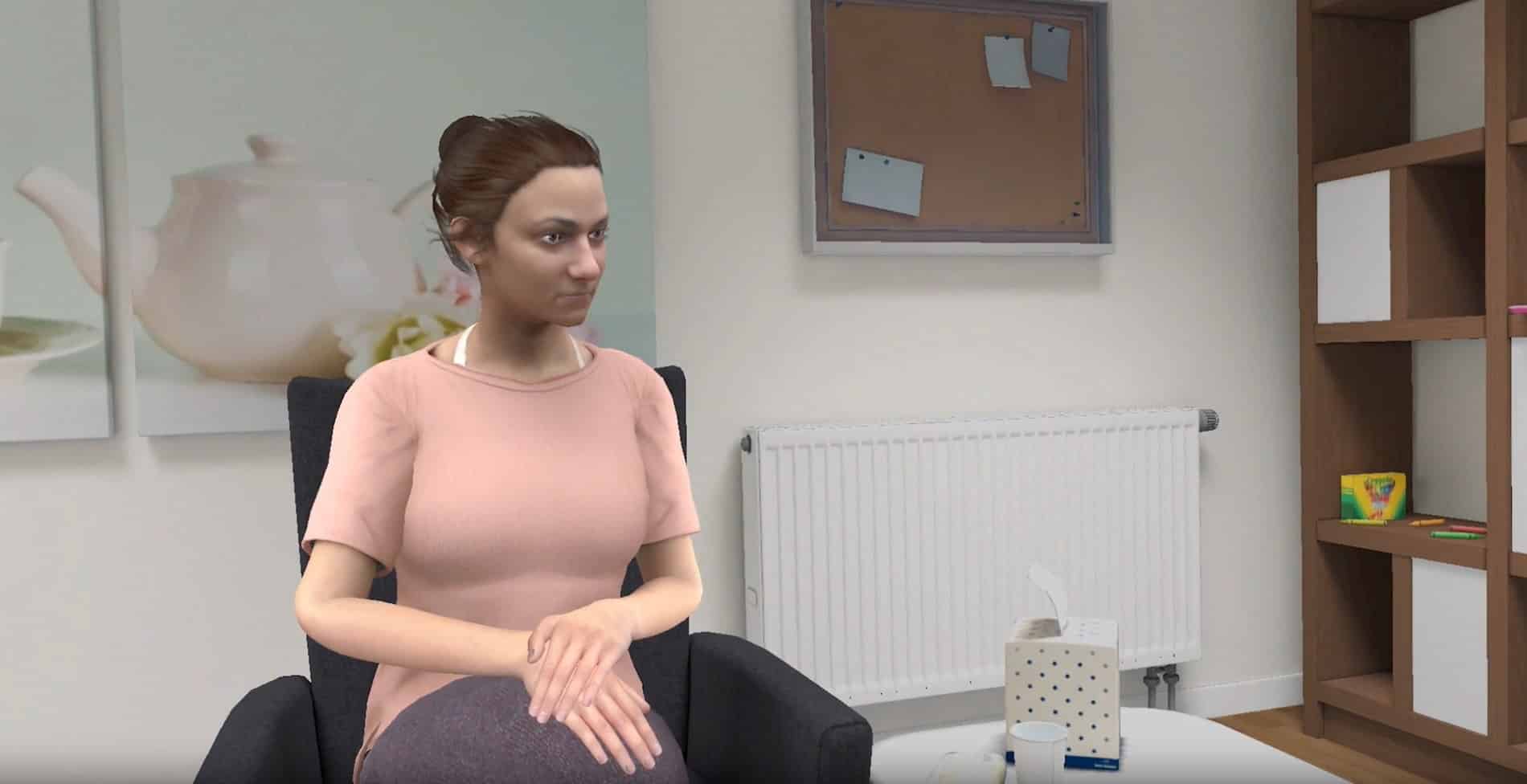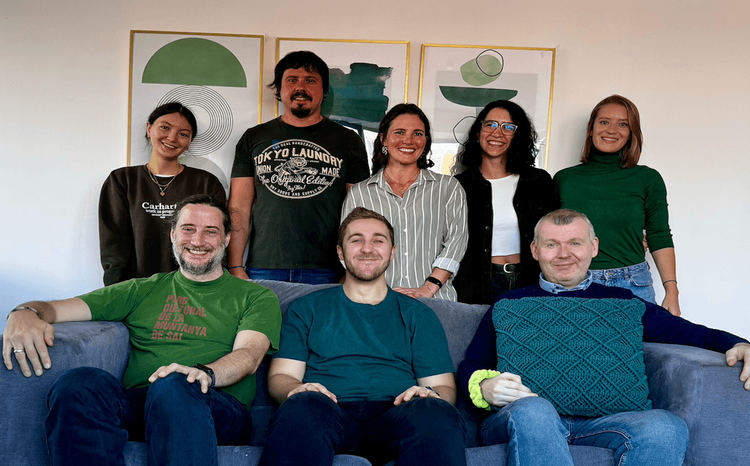Perinatal mental health gets XR treatment in new training programme
- 31 March 2023

England has become the first country in the world to launch clinical training in perinatal mental health using extended reality (XR) technology.
Perinatal mental health conditions affect between 10 and 20% of people giving birth in the UK. While these problems are often mild and last for a short period, some can present as severe mental illness and, without the right immediate support and care, can pose a high risk to parents and their babies.
Treatment for perinatal mental health conditions relies on healthcare professionals being able to engage and communicate effectively with patients to determine the severity of their condition and make appropriate interventions.
However, there are often limited opportunities for learners to practice these skills in a safe learning environment where they can practice and reflect on their experiences.
Health Education England (HEE), in partnership with Fracture Reality, has developed a ground-breaking patient avatar that allows healthcare learners to expand their skills interacting with people with perinatal mental health problems through a series of instructor-driven simulations.
Using a headset, learners interact with the avatar, called Stacey, a virtual patient who is directed by an instructor and run as a simulation on Fracture Reality’s JoinXR platform.
The technology can be used in augmented reality, where learners are able to practice in their own clinical setting, as well as through virtual reality that offers students the chance to experience interacting with Stacey in her own home or other clinical settings.
The project provides learners with an immersive simulated experience that allows them to have realistic and natural conversations with Stacey, asking her about her symptoms and making plans to get her the right support.
It has been designed to allow students to practice in a safe environment until they are able to take the skills they have learnt into a real-life clinical setting.
Rebecca Burgess-Dawson, national clinical lead for mental health at HEE, said: “Stacey provides students and learners with a wealth of scenarios that they may encounter while they are working in a clinical setting, all in a natural and realistic way.
“The potential impact that she has on perinatal mental health training is enormous and she will have a real benefit for learners in gaining the practice and skills they need for future patients they treat.”
The Centre for Immersive Technologies at the University of Leeds evaluated the training experience, with over 100 participants – ranging from GP and mental health nurse trainees to student doctors or aspiring clinical psychologists – taking part.
The study has shown that this new immersive method of training is highly usable and useful for learners and educators. Some highlights include participants showing significant improvements in cognitive and emotional understanding after undertaking the simulation.
Across all participants almost four out of five (79%) of learners said they preferred this simulation training over traditional approaches.
Other universities will now be invited to trial the technology with their own students.
Simulation an ‘art rather than science’
In mental healthcare, the use of simulation has proved complicated, as the ‘art rather than science’ of humanistic interactions has been more difficult to replicate.
Yet, the development of higher fidelity avatars run on JoinXR, coupled with natural language conversations designed in detail by Fracture Reality with HEE-affiliated subject matter experts, has made such training more accessible.
The project has been supported by HEE’s Technology Enhanced Learning team, which has managed the relationships between subject matter experts and suppliers.
Steve Barclay, Health and Social Care Secretary, said: “This project shows how we can improve training for staff using interactive technology which creates realistic simulations of clinical settings to help trainee GPs and other medical staff understand complex patient needs, for example replicating face to face conversations with new or expecting mums who may have mental health challenges around birth.
“Learning in this immersive way can prepare our future workforce to provide the best possible care for patients.”
Mark Knowles-Lee, chief executive of Fracture Reality, said: “We’re excited to see the latest technology realised in such a meaningful way with our digital patients like Stacey.
“It’s a great privilege to be at the centre of this multidisciplinary team, coalescing cutting-edge design and development with world-class expertise in healthcare and training.”




